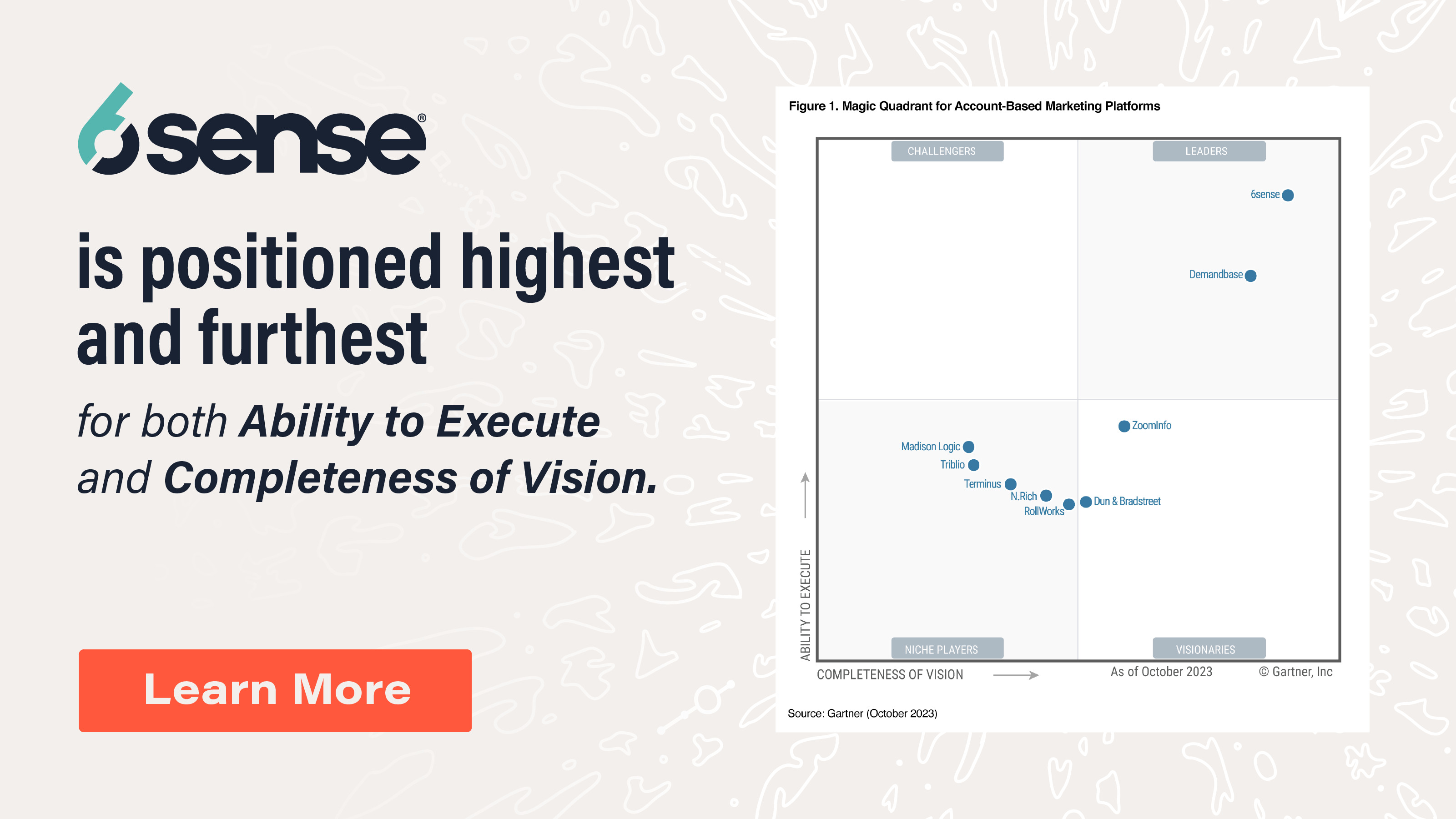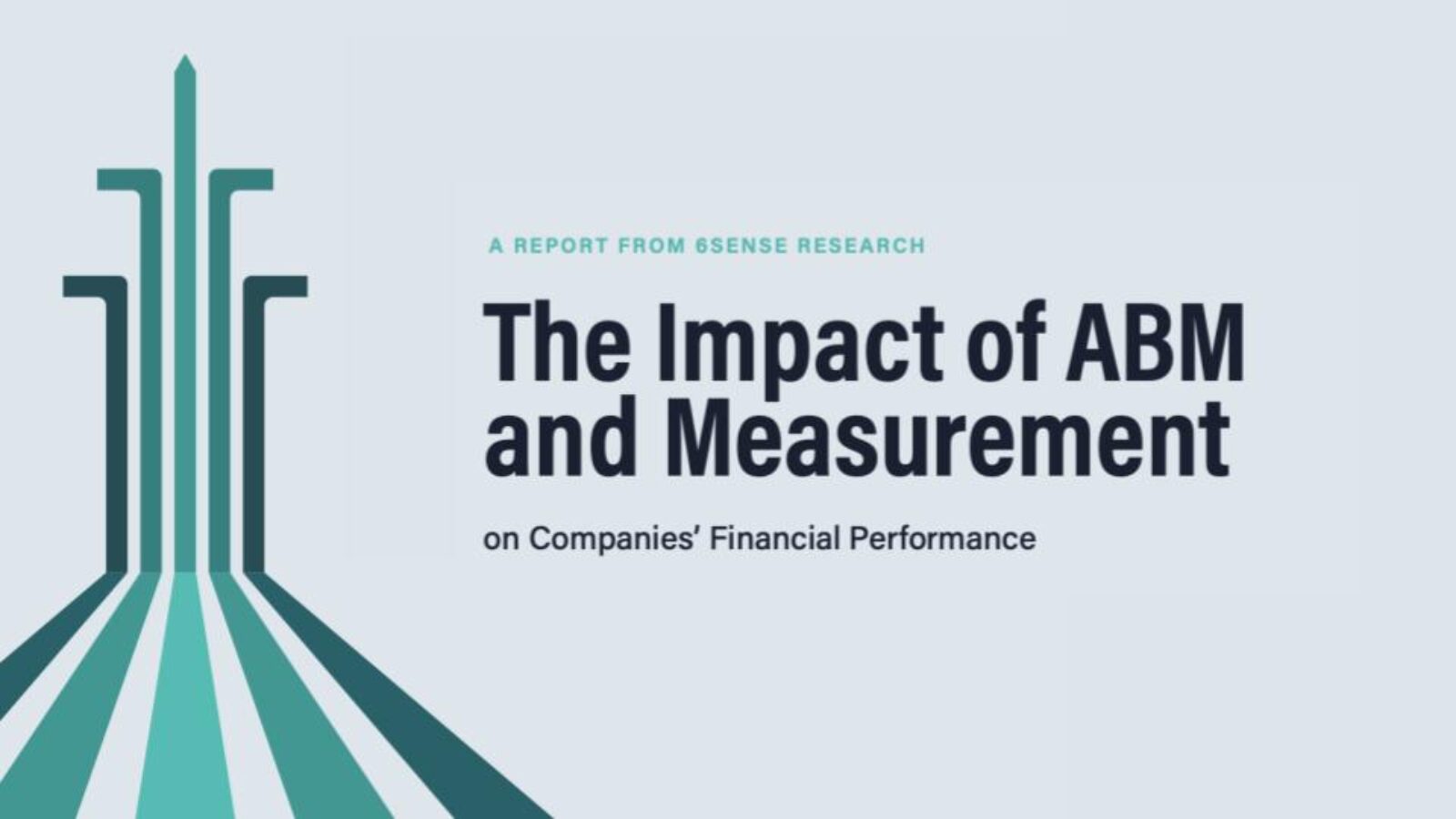B2B sellers that have adopted account-based marketing (ABM) generate stronger financial results, according to a recent analysis by 6sense Research.
That wasn’t a big surprise — but dig a little deeper and some notable patterns start to emerge.
In our latest report — The Impact of ABM and Measurement on Companies’ Financial Performance — our research team also asked hundreds of B2B practitioners how they measure the impact of their ABM efforts, and how they use the ensuing data.
Key Findings
- A lot of ABM practitioners are not measuring ABM-specific metrics and KPIs
- ABM-centric measurements are more strongly correlated with better financial performance than traditional measurements are
- Organizations that include ABM-centric measurements for incentivized compensation tend to have better financial performance
- Organizations with ABM programs tend to track more KPIs of all kinds compared to organizations without ABM programs
Implications
The way revenue teams choose to measure go-to-market efforts has significant financial impact.
Organizations may be progressing in how they market their products and services and engage prospects, but many still fall behind in their approaches for gauging success.
Revenue teams should measure how ABM impacts
- The volume of opportunities
- Pipeline
- Revenue
Those who measure these metrics and tie them to incentive-based bonus plans can expect better ROI.
Read the report, The Impact of ABM and Measurement on Companies’ Financial Performance, for more insight into how metric tracking influences revenue.


